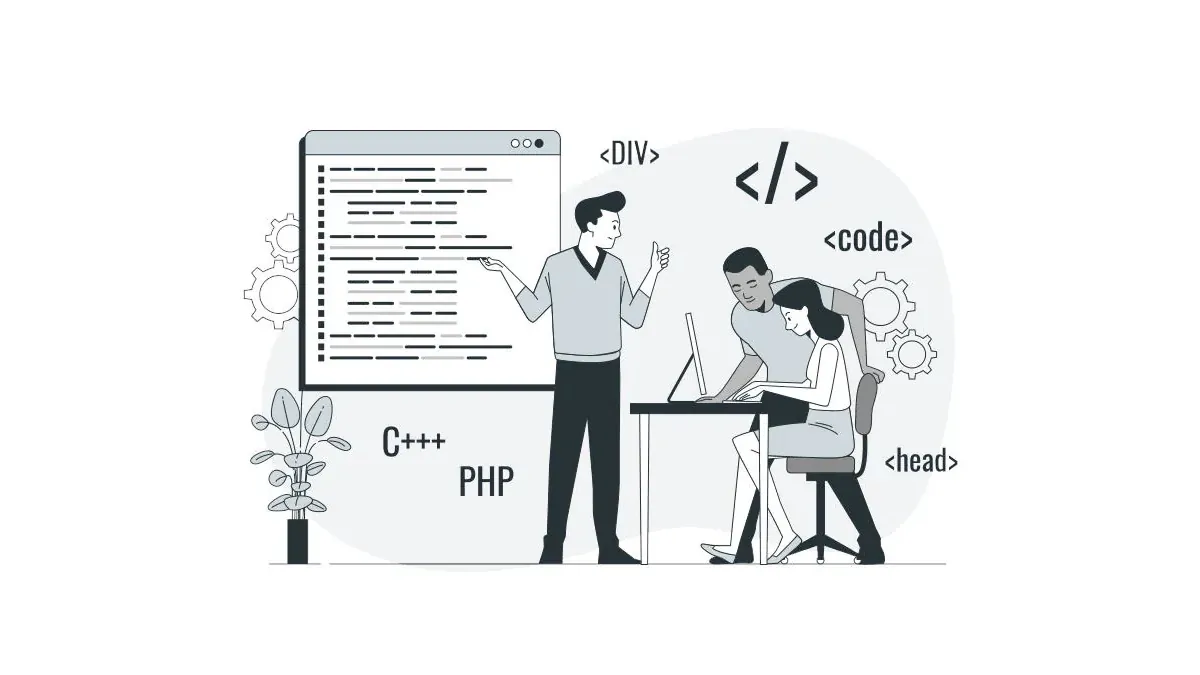This time, I’m going to dive into a topic I’ve already covered before on Medium and other platforms. I’m talking about how to start in the world of programming.
In this article, I’m going to try to answer the big question I often get: How do I start programming?
In this case, I can’t use myself as a reference. My journey was a mix of different things, driven by a curiosity I feel is innate. I started programming on my own during my teenage years, supplemented it with courses, and later reinforced it with university knowledge, plus everything I learned while working.
However, if I had to start from scratch today, I believe there are several possible alternatives. I’ll explore them in this article.
How to Start Programming
There’s a well-known joke that has been circulating on the internet for years, which says that a programmer is a machine you feed with coffee, and in return, it produces code. Programming code is what a programmer creates.
If you’re thinking about becoming a programmer, then you should know that a large part of your time will be spent writing programming code.
The First Clash with Code
I think it’s important to first get a good hit with code. Something that breaks the ice. For that, you don’t need any course. Just look for a super basic tutorial or video online, in any technology, and try to follow it.
The outcome of what you’re doing following the instructions you find doesn’t matter. What counts is that first experience itself. It can be fun, interesting, or simply frustrating. Again, it doesn’t matter.
If this experience turns out to be too negative, I recommend you look for another tutorial and see if things change.
If not, maybe programming isn’t for you. Keep searching and exploring until you find something that seems at least a little fun or interesting to you.
Choosing the Technology
Once you’ve already hit the wall that is code and have some idea of what it’s like to write it, it’s time to find a technology that interests you.
If your end goal is to program desktop applications or complex video games, you could start with C++, Java, and other similar programming languages.
If you’re interested in creating websites like educational platforms or social networks, you can start with PHP, Ruby, Node.js, .NET, and all the web languages and frameworks associated with them.
In case you want to develop mobile apps, then you can look into Android and iOS.
These are just a few of the many technologies that exist. The great thing about today is that there are so many options, giving us a lot of freedom to choose what we want to learn.
Keep in mind that while learning one technology doesn’t exclude you from learning another, generally, programmers specialize in a handful and not in all of them. No one can master everything.
How to Learn Programming
Up to this point, everything is simple. What comes next is the really tricky part: how to learn in order to master one of these technologies, especially when starting from scratch.
Let’s explore different alternatives that can even be combined.
Taking Courses
Courses involve signing up online or attending a physical location to attend classes and do practical exercises, although most focus primarily on watching.
At the front, there’s an instructor, who in most cases is a trained and qualified person to teach.
The good thing about courses is that they are great for introductions to technologies. They provide a good general overview of the world related to them. Many can be done online, on platforms like Udemy and Domestika.
The bad thing about courses is that they tend to be superficial and have low demands, which forces you to put in a lot of effort on your own.
Self-Study
If you’re self-taught, you might be able to learn on your own by reading technical blogs, tutorials, and watching video tutorials.
This self-learning skill is essential for every programmer, and you’ll need to acquire it sooner or later.
I also include working on your own projects as part of self-study.
The good thing about self-study is that you develop the ability to teach yourself, a highly sought-after skill for every programmer. Plus, I believe it helps you gain autonomy when it comes to programming.
The bad thing about self-study is that sometimes, you need a mentor to help and guide you. At the beginning, you may find yourself with too many questions, and getting out of that situation can take a long time without someone to guide you.
Learning at University
By studying a systems-related degree, such as Systems Analyst, Systems Engineering, or Computer Science, you’ll be required to take several levels of programming courses.
In fact, you’ll likely need to program in many of the subjects. But you’ll also have to tackle other courses, some related to logic, mathematics, and even physics.
The good thing about university is that concepts are formalized, and you study the internal workings of computers. Additionally, the level of rigor is usually higher.
The bad thing about university is that when it comes to programming specifically, in some cases, students are left to learn different technologies on their own. In other words, the university won’t teach you how to write code. Instead, you’ll end up learning autonomously, driven by academic demands.
Getting a Job as a Programmer
“How am I going to get a job as a programmer if I don’t know how to program?”
You’re probably thinking that. And it’s true. However, in some cases, it’s possible to join a company knowing very little and allowing them to train you.
I believe this is the best way to learn how to program. Being in the daily grind with other programmers. Taking a pragmatic approach whenever a problem arises. Writing code every day. Reading other people’s code and refactoring (improving) both your own and others’ code.
The good thing about learning on the job is that you develop a pragmatic approach.
The bad thing about learning on the job is that sometimes it strays too far from the theoretical framework, and if the programmer doesn’t continue their education, they can get stuck in the technology they know and at their current skill level.
To Wrap Up
I hope this article helps you. Remember that the methods I explained can be combined. They all complement each other. Once you master a technology, you’re likely to learn the next one on your own.
My biggest suggestion is that if you’re just starting in the world of programming, be patient. You can’t learn everything overnight. It takes years.
Also, it’s important to enjoy the daily learning process. Programming is a fantastic activity, and learning how to do it is something that deserves to be enjoyed.
Find more content about programming and the freelancer lifestyle
I hope you found this article interesting.
If you’re looking for hosting, I recommend Digital Ocean. Follow this link to get $200 in credit to use over a 60-day period.
I invite you to follow me on social media: YouTube, LinkedIn, X, GitHub, and Instagram. I’m also on CodeWars.
That’s all. Thank you very much for taking the time to read.
See you next time!

